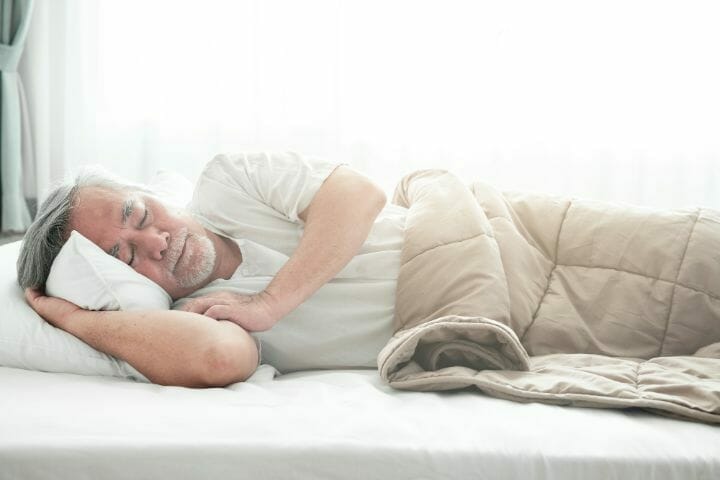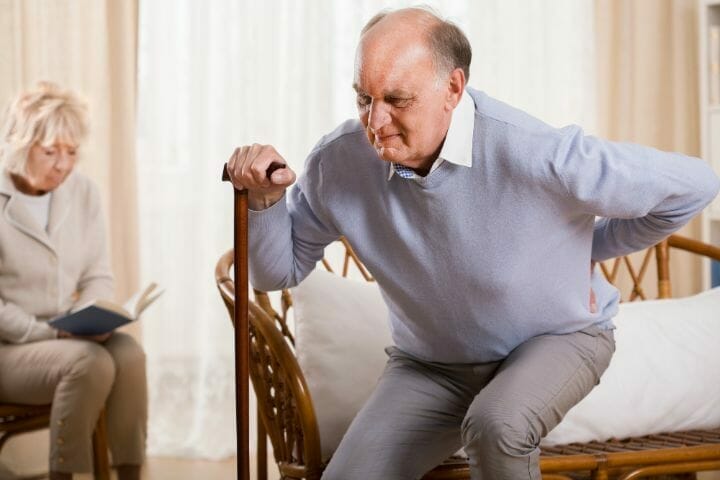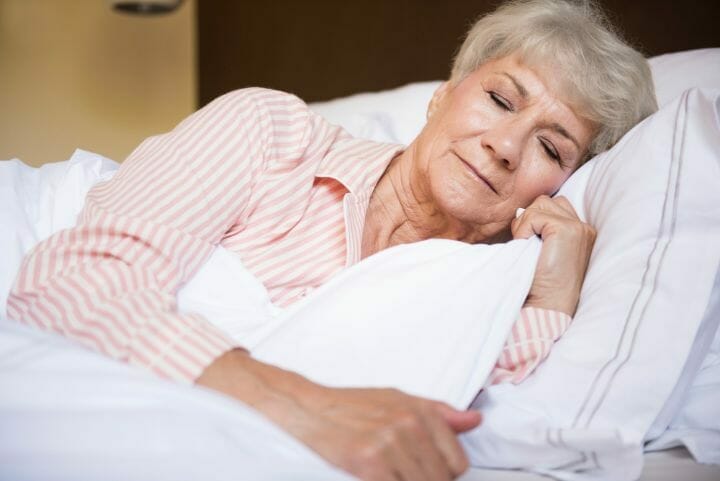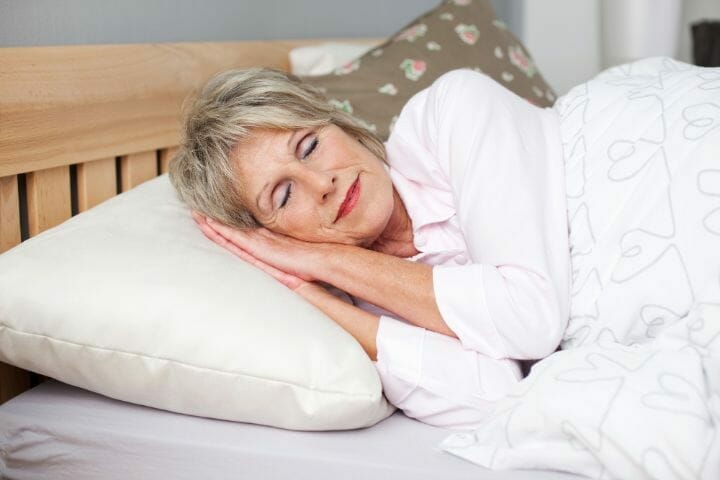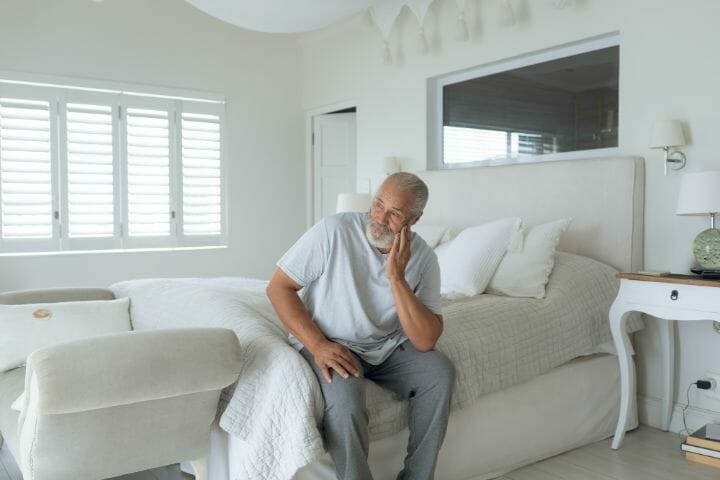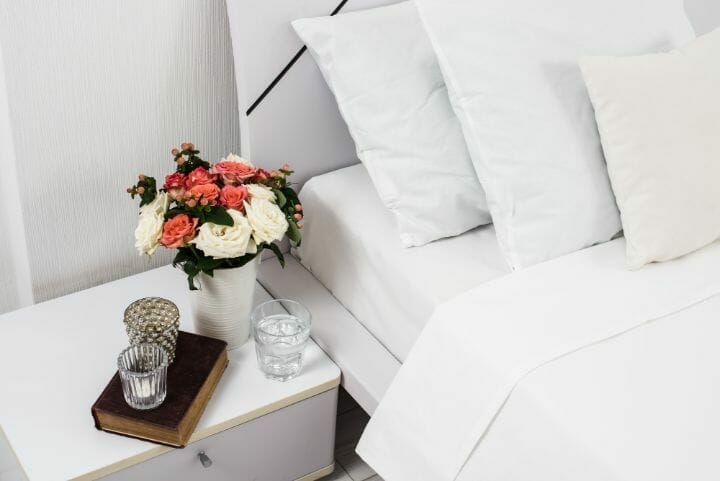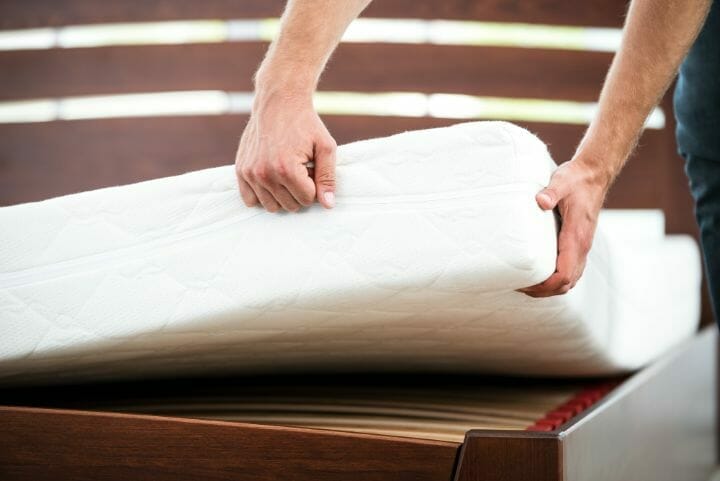As per the National Council on Aging, falls are the leading reason for fatal or non-fatal kind of injuries for senior Americans. Falls tend to threaten the safety of the elderly as well as their independence.
Apart from physical injury and hardship, falls have an economic cost as well. The injured person might need expensive medical treatment and sometimes, a family member might have to take time off work to attend to them.
However, falls are not an unavoidable consequence of aging. The frequency of falls among seniors can be considerably reduced by bringing in practical adjustments to the lifestyle of the elderly.
This article talks about various ways in which you can prevent your elderly from falling out of their bed.
Contents
How Serious Is the Issue of Falling for the Elderly?
According to the U.S. Centers for Disease Control and Prevention, around 25% of those aged 65+ experience a fall each year. Falls are one of the leading causes of fatal injuries and the most common cause of trauma-related hospital admissions among seniors. Falls result in more than 2.8 million injuries that are treated in the emergency rooms annually. This includes more than 800,000 hospitalizations and more than 27,000 deaths.
The seriousness of a fall depends on the circumstances in which it has occurred. It depends on the height of the bed, the speed of fall, the physical condition of the elderly, and even on the items that are placed around the bed.
What Is the Impact of Falls on the Life of Older Adults?
Falls carry a huge impact on the quality of life being led by older adults. Falls may result in debilitating injuries for the elderly. A serious fall can threaten a senior’s ability to function in a self-sufficient manner.
Falls can sometimes cause bone fractures in the elderly. Hip fractures are very common in the list of injuries resulting from falls. Unfortunately, fractures can turn out to have many more implications for older adults as compared to their younger counterparts.
A fracture can lead to reduced mobility and can affect their ability to finish day-to-day tasks in an unassisted manner. In the case of elderly individuals, these results can sometimes turn out to be irreversible.
Falls are also the most common reason behind traumatic brain injuries or TBI. Head injuries can result in TBI and become a huge concern if the senior is taking blood-thinning medication.
Falls also affect the level of confidence in the elderly. A large number of elderly avoid or limit their activities and social engagements just out of the fear and the adjoining repercussions of a fall. Sometimes, this can lead to further physical decline, social isolation, stress, depression, and feelings of helplessness.
In addition to this, falling doesn’t just affect the elderly but also impacts the lives of their family. A caregiver within the family may have to rush from their workplace in case of an accident. Taking care of the elderly requires time and dedication so that they recover well and any further falls can be prevented.
What Are the Common Reasons Because of Which Seniors May Fall Out of Bed?
Seniors may fall out of bed during their sleep sometimes due to a rolling motion or while they are trying to get out of bed. In both of these cases, it poses big risks to their health and well-being.
The major causes for seniors falling out of their bed to include the following-
Balance Related Issues
Such falls are caused by issues related to balance or mobility. Simple tasks like reaching for something placed next to the bed like a box of tissues or a jug of water may cause the elderly to lose their balance and fall out of their bed.
Sometimes there are underlying issues like Paroxysmal positional vertigo which is a pretty common issue among older adults. This sort of balance issue leads to dizziness, vertigo, and some other symptoms that arise due to debris (otoconia) that has collected within a part of their inner ear.
The loosened otoconia shifts due to head movement and this action lead to false signals to the brain leading to dizziness and vertigo.
Rolling Out of the Bed
Sometimes the seniors tend to do a lot of tossing and turning on the bed which may lead them to just roll out of bed. The risk of falling is significantly higher if the older adult prefers to sleep too close to the edge of their bed. It may also be possible that they may be rolling around at night because of some form of discomfort. Addressing the discomfort or using products like bed rails can actually help in addressing the issue of the fall in this case.
Medications
While trying to determine the cause of the fall, you might want to look at the medications that they are taking daily and see if any side effects involve dizziness and disorientation.
Disorientation or Confusion
Some elderly tend to get disoriented or confused at the night and fall out of bed. Some may try to attempt to get out of their bed when in actual they really are not fully “with it.” You might want to consult the doctor, in this case, to figure out the reason behind this behavior.
Sundowners in seniors with dementia is a condition that can lead to increased fatigue and confusion in the evenings. The confusion or disorientation can also be related to the medications that they are taking or can also be a sign of dementia.
Ineffective Management of Hydration and Toileting
As they age, the elderly may start having one or the other form of issues related to bladder control. In such situations, they try to rush quickly to get to the bathroom which may lead to a fall-related accident that may include tripping and falling. This can also happen if the elderly suffer from incontinence-related issues.
To address this situation, you may want to look at different ways to manage their hydration and toileting needs. You may try looking at products like bedside toilets that will require your loved one to travel a much shorter distance thereby helping them prevent the rush, and thereby reducing the chances of a fall. In addition to that, you can also consider making your bathroom floor less slippery.
Changes in the Sleeping Environment
Any sort of changes in the sleeping environment may lead to confusion among the elderly. This may involve changes to furniture, lighting, or even the side of the bed that was occupied by them.
A newer bed that may be higher or lower than the previous one may lead to confusion. A different set of sheets or different sleeping clothing that are more slippery than the ones that the elderly are accustomed to sleeping on can also be a reason.
Recent Medical Issues
Recent traumatic medical events like a stroke or a heart attack can sometimes trigger a change of mobility. Recovery from major surgery can also lead to this situation.
So How Do I Prevent My Loved One From Falling Out of Their Bed?
Getting up and lying down becomes difficult for the elderly as they age and this makes them a lot more susceptible to falling out of their bed.
This is the reason why the caregivers in the family should use the following tips to lower the loved one’s risk of falling out of bed.
Boost Bone Health
Regular exercise can help in increasing the balance and flexibility of your loved one, making it easier to get in and out of the bed. The elderly should ideally do moderate exercises during the week, like walking, yoga, and swimming. If they are not keen on these exercises, basic tasks like gardening can also help in strengthening of muscles.
Many seniors need help with their exercises as well as other activities. You can take the help of professional services or enroll them in group activities where they can socialize while exercising. This can also offer the family’s caregivers an opportunity to focus on their personal responsibilities or take a short break preventing any form of burnout.
Position the Bed Accordingly
You should not position an elderly’s bed too close to the dresser, chairs, or other objects in the room that could lead to an accident or injury. You should set the height of the bed according to the comfort and abilities of your loved one.
For instance, if your loved one is short in height, you should avoid raising the bed too high as it will make it difficult for them to climb in and out of it. Instead of this, you should ensure that the senior’s feet are touching the ground easily without putting too much stress on their bones. You may try to have bedroom aids or equipment to help the elderly get in and out of the bed easily.
Develop Good Sleeping Patterns
Your loved one can turn out to be groggy and confused for most of the day if they do not get proper and enough sleep throughout the night. This confusion can sometimes make it difficult to get in and out of the bed, thereby increasing the risk of falling. When the elderly get an adequate amount of rest, they wake up in an alert and energized state of mind.
To help the elderly sleep better at night, you can develop a bedtime routine that will help them relax their body.
Avoid Serving Drinks Before the Bedtime
Aging can often make controlling the bladder a little difficult, and the number of trips to the bathroom that the senior takes in the middle of the night might increase with time.
Considering the urgency, the seniors might rush to get to the bathroom where balance-related issues and lack of lighting could lead to falls and trips. Install night lights for the elderly to solve this problem.
Avoiding drinking liquids right before bedtime can help for sure. If the situation is much more difficult for you to manage, you can look for an option to use a bedside toilet in the bedroom to reduce the distance between the toilet and the bed.
Monitor Effects of Medication
It would be a good idea to monitor the medication that the seniors are taking, for any side effects that are damaging to the sleep quality or brain chemistry.
Many medications that are used to treat people with memory problems or dementia can affect the functioning of the brain and can cause drowsiness or can worsen confusion. These drugs are often called psychoactive.
In addition to this, medications that affect blood pressure can cause or worsen a sudden fall in blood pressure. This can increase the risk of a fall by making the elderly feel dizzy or faint.
Older adults suffering from diabetes take medication that lowers the blood sugar levels in their bodies. Low blood sugar caused by these medications is also associated with increased falls.
Do remember that you are just monitoring the medications at the initial stage. Do not make any changes to the medication regimen of your loved one without consulting the doctor. Suddenly discontinuing any of these medicines can cause serious harm and in some cases, permanent damage.
Avoid Extra Bedding
A lot of us like to decorate the rooms in our houses. Decorations can definitely make the room look lively and brighter, but too many pillows, throws, and covers can increase the risk of falling for the elderly. When the elderly are pulling back the unused items, their feet could get entangled in the sheets and can cause them to fall when stepping out of their bed.
Another thing that you can do is ensure that the heating unit is set at a comfortable temperature so that they might not need excess blankets and covers.
Regular Medical Check-ups
Always get regular check-ups from the doctor for the elderly to catch any problem early. A visit to an eye doctor would also be a good idea to identify and treat and vision-related problems. In case they are finding regular movement a bit difficult, you could look at the usage of properly fitted walkers and canes for your loved ones.
Provide Additional Safety Features
In the next section, we will talk about some products that are commonly used to prevent your loved ones from falling out of their bed. Apart from these accessories, you can also make modifications to the elderly’s bed to make it more comfortable and safe for them.
You can look at options of having beds that can adjust electronically with the push of one button. In this case, if your loved one intends to sit up or straight, they can raise the electric bed without using up a lot of their energy. The bed thus helps them in managing their comfort levels and personal preferences better.
What Products Can I Use in Addition to the Regular Precautions to Prevent My Loved One From Falling Out of Their Bed?
Apart from taking the regular precautions, you might like to introduce some new products that can assist the elderly in avoiding that dangerous fall. We are listing some products that can help you prevent the fall. The choice of the product that would work best for you is dependant on the physical and cognitive deficits that the elderly might be dealing with.
1. Bed Rails for Seniors
When it comes to protecting your loved ones from falling out of the bed, bed rails are usually what most people would think of. They are an excellent option but not meant for every case.
In some cases, the elderly have found themselves in a difficult position and sometimes injured themselves when trying to get out of the bed by sliding down to the end, or while trying to climb over the bed rail. Sometimes they can also get their arm or leg stuck in the bed rail.
However, bed rails are still one of the most sought after options. There are different types of bed rails available in the market. We are outlining some of them for you here.
Assist Bed Rails or Transfer Bed Rails
Transfer Bed Rails are the smallest and least intrusive of all kinds of bed rails. They work best with the elderly who have the cognitive awareness of their surroundings and are the least likely to fall out of their bed.
Standard Bed Safety Rails
You do not have to purchase a hospital bed to get access to these rails. You can add this kind of safety rails to your existing bed. The only precaution that you would need to take with these rails is that when they have been folded down, they tend to stick out from the bed frame. This can lead to bruises or cuts for the elderly if they are swinging their legs over to the side of the bed where the folded rail is.
Full-Length Side Rails
The full-length version of bed rails can install onto a standard bed. Most of these bed rails can mount to the bed’s fabric spring and are secured tightly with a set of spring-loaded crossbars. The precaution that needs to be taken in this case is that the elderly should not try to get out of the bed when the safety rail is up. They might get caught between the bars and may injure themselves.
In addition to side rails, you can also look at Grab Bars as an option.
Pros
- Bed Rails are easy to use.
Cons
- They may not be suitable for some older people with Alzheimer’s or Dementia.
2. Platform or Low Beds
The best bed for a senior is one that can accommodate their height and a mattress that is comfortable for them. The general rule of thumb to identify the best bed height is considered to be 20-23 inches from the floor to the top of your mattress. However, the truth is that these numbers are based on wheelchair height and not necessarily that of older adults.
The height of the bed ideally should be relative to the person who would be using the bed, and thus this changes with the person. In the case of this bed, even if a fall occurs, chances of severe injury reduce owing to the short distance from the floor. As an extra precaution, you can also add a fall mat at the bedside.
They also do not require a box spring providing you with savings in case you have to replace the mattress. However, since the mattress, in this case, sits on slats, it provides a very firm type of support. It becomes quite uncomfortable for those who sleep beside them. To avoid this add a mattress topper of the thickness of two or three inches below your mattress.
It is recommended to position the bed up against the wall on one side. This helps in creating a barrier on one side, thereby reducing the chances of a fall.
Pros
- They are simple and inexpensive.
- If a fall occurs, it is not a large distance to the floor, thereby minimizing injuries.
- No requirement for a box spring.
Cons
- It is often a very firm feel to the mattress.
- Sometimes it may be difficult to get out of these beds because of their low height. This is difficult even for the caregiver.
3. Posey Beds
Posey beds are specifically designed for people who are at a much higher risk of serious injury resulting from falling out of the bed. This may include those who are suffering from severe dementia usually combined with REM Behavior Disorder or other similar diagnoses. In these cases, they tend to kick, punch, and thrash about in their sleep which may lead them to fall out of bed.
However, not all elderly would be comfortable sleeping in a Posey Bed, especially if they are claustrophobic in any form. They may find it difficult to lie in a bed that has 4 sides and a top. You can open the zip and make the screened area open.
The decision to use a posey bed needs to be thus taken in consultation with the doctor and the caregivers (if any) who are working with the elderly.
This kind of bed is mostly used in hospitals, senior living facilities, and nursing homes.
Pros
- Most suitable for senior with severe Dementia or Alzheimer’s
Cons
- Not suitable for anyone with claustrophobia.
4. Floor Fall Mats
If you are not in a position to invest in a low rise bed and your elderly parent plans to use a standard height bed instead, then you must use a twin-sized mattress or a floor fall mat on the bedside. This can help in cushioning the fall and hopefully be able to prevent any major injury or at least minimize it.
In case your senior is in the habit of regularly getting up in the middle of the night, a mattress might actually not be a good option. Stepping on this kind of surface may actually cause a fall.
Thickness wise, a fall mat would not comparable to a twin-sized mattress. However, it is quite easier to stand on the fall mat if the elderly need to get out of bed. You can also use a thick mattress topper (cut to the required size) but it can turn out to be difficult to stand on. You would thus need to choose the option that suits you best according to your situation.
Pros
- They cushion a possible fall from the bed.
Cons
- They are difficult to walk upon when you are standing up from your bed.
5. Bedside Wedges, Rolls and Bolsters
For beds without rails, bedside rollers are generally fastened to the mattress or the bed frame. Wedge pillows are excellent for supporting the body of the elderly and for keeping them from falling out of their bed. These pillows are generally triangular in shape. You can also find rectangular wedges that are used to support and elevate the knees.
Pros
- They are suitable for those who are not in favor of using rails on their beds.
Cons
- They may not work for older adults suffering from severe dementia or Alzheimer’s.
6. Pool Noodles
Pool Noodles are inexpensive and come in a multitude of widths. They can be cut and taped together to fit any configuration or size that you might need.
To connect the pool noodles while still keeping them on the sides of the bed, you can use a strong wide and long ribbon along with strong tape. You can further fasten the noodles either to the bedsides with more tape and ribbons or wrap the ribbons under the mattress all the way. Fitted sheets can then be placed over the noodles.
In case the noodles are not large enough to keep your elderly in the bed, then you should use a wedge or bolster for this purpose. The usage of pool noodles is advisable only if the elderly whom you are caring for is cognitively aware enough to understand that the noodles are meant to keep them safe and to remind them not to leave the bed without any form of assistance.
Pros
- They are an inexpensive way of replacing bedrolls.
Cons
- They may not work with larger-sized people.
7. Body Pillows
Body Pillows are one of the most budget-friendly solutions to keep the seniors safely in bed. Try placing one or two thick body pillows on the sides of their bed and observe how comfortable they are with the pillows. However, if falls are frequent, it is advisable to opt for solutions that include fixed barriers
Pros
- Inexpensive.
Cons
- Does not work all the time, especially if the falls are frequent.
8. Concave Mattresses
Concave mattresses are mattresses that have built-in raised edges. They can significantly reduce the chances of falling out of bed while sleeping. However, they are not the cheapest option and can sometimes make it harder for the elderly to get out of bed (especially with the models that do not have a center egress). You should therefore consider the elderly’s situation before purchasing these mattresses.
9. Special Mattress Cover
In case you do not have the budget but would prefer something on the lines of a concave mattress, you can opt for a safety mattress cover. These mattress covers are easy to install and clean. They feature bolsters that can improve the safety aspect of your loved one.
The special mattress cover is cheaper and a strong option when compared with a concave mattress and pool noodles. It can be a more affordable solution as compared to buying a new mattress while providing the same level of efficacy.
10. Bed Alarms
Bed alarms are an inexpensive way to monitor the elderly in your house. A lot of them come wireless and cord-free making them as safe as possible with no cords to get tangled in.
A bed alarm is a pad that is placed on the top of a mattress under the fitted sheets. It is placed under the shoulder blades of the elderly on the bed. The moment the elderly start to get up, the pad would set off the alarm intimating you as well.
Do note that these bed alarms do not come with two alarms so that you could keep one in the elderly’s room and another in yours. The way around this situation is to use a baby monitor in addition to the bed alarm so that you can hear the bed alarm go off from your room. This works really well especially in cases where both the bedrooms are on separate floors.
Pros
- They are an excellent way to monitor if the elderly have gotten off their bed.
Cons
- They do not prevent falls but only alert the caregiver of the movement off the bed.
Conclusion
As people age, falling out of bed becomes a significant risk and can be the major cause of injuries. Finding out the reason behind the falls is the key step while you are developing the prevention strategy.
However, before that, you might want to try modifications like beds that are closer to the ground, fall pads, or bed barriers. It is wise not to wait for an injury to happen and address the risk of your loved one falling out of bed beforehand.
Implementing these safety strategies in the present can help the elderly maintain their health way better in the future.

